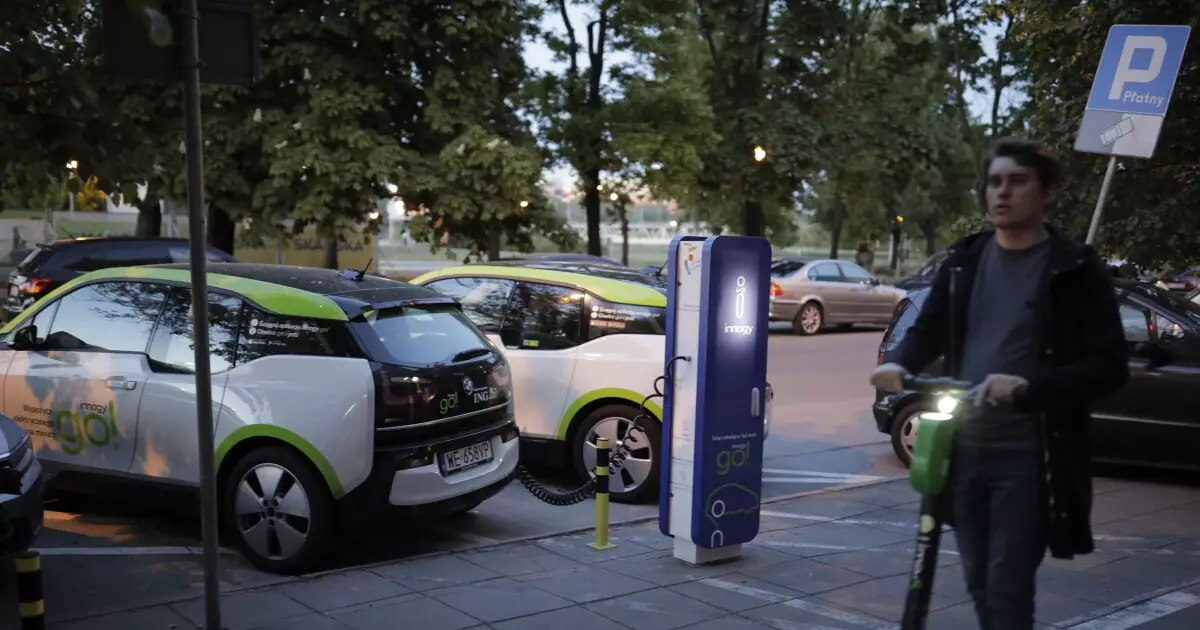The ongoing contention in America over fiscal responsibility is once again front and center as the House Transportation and Infrastructure Committee recently pushed forward a significant part of the Republican budget reconciliation bill. Yet, within this substantial advancement lurks a troubling narrative—the decision to eliminate a proposed $20 annual vehicle registration fee, initially introduced to bolster the beleaguered Highway Trust Fund. This shift underscores a worrisome tendency among lawmakers to sidestep comprehensive solutions for more superficial gestures, perhaps for fear of backlash from constituents reluctant to bear additional fees, however small.
The rejection of this revenue-raising mechanism demonstrates a reluctance by GOP lawmakers to engage in earnest discourse about sustainable funding sources for a trust fund that has long teetered on the brink of insolvency. Instead of confronting the dire need for reform by putting forth a fair and strategic revenue-raising plan, the committee has shifted its attention to modifying existing fees—raising the electric vehicle fee to $250 and maintaining a $100 charge for hybrids. Such reactionary measures seem like nothing more than an attempt to placate critics without addressing the root of an increasingly significant issue.
Shifting Priorities: Coast Guard and Air Traffic Control Funding at Risk
What’s equally alarming is how GOP leaders, including Committee Chair Rep. Sam Graves of Missouri, have justified slashing essential funding for modernization projects such as air traffic control, reducing its budget from $15 billion to $12.5 billion. Dropping funding for the Coast Guard from $23 billion to $21.2 billion exemplifies a disturbing prioritization that focuses on short-term expenditure cuts rather than ensuring well-funded, long-term infrastructure developments—and thereby national security metrics.
The cuts are allegedly part of a broader strategy to save a minimum of $10 billion over the next decade. However, one must question whether these funds are truly being allocated towards innovation or merely recycled into a broader pool of savings at the expense of public safety and efficient transportation. Indeed, Graves speaks optimistically about “historic” investments, yet how do these investments compete if we keep cutting capabilities that are essential to the country’s functioning?
Inadequate Response: Ignoring the Democratic Opposition
The resistance from Democrats has been robust. Ranking Member Rep. Rick Larsen of Washington lamented that Republican cuts undermine not just transportation efforts but also overarching investments in clean energy and community welfare. While the GOP’s approach of rescinding $4.6 billion in unobligated funds from equitable grant programs may sound fiscally prudent, it can hardly be deemed responsible if what is traded off are the principles of equitable resource distribution and poverty alleviation.
The dismissive tone with which over 100 Democratic amendments to the legislation were voted down reflects a concerning pattern. By repeatedly turning a blind eye to diverse perspectives, the committee places itself in a bubble that risks alienating constituents who would benefit from sustainable transportation investments and clean energy initiatives.
Looking Ahead: The Implications of Persistent Partisan Politics
As the House panels work on 11 separate bills ahead of a planned floor vote, it is crucial to analyze whether the relentless focus on deep cuts, particularly at the expense of public utility investments, is genuinely in the best interest of American citizens. The alleged fiscal conservatism is misplaced if not accompanied by a parallel commitment to innovation in transportation and infrastructure that would spur economic growth rather than stifle it.
While the GOP frames these actions as necessary for reducing wasteful spending, one must wonder about the broader implications of neglecting vital sectors that directly affect citizens’ quality of life. If this budget reconciliation conforms solely to the whims of current party lines rather than emerging bipartisan solutions, we’re left with the prospect of entering another cycle of fiscal irresponsibility—one that imperils the foundations of trust and progress within American governance. The urgent need for re-evaluating priorities and embracing a holistic approach remains unaddressed, leaving the nation’s infrastructure in peril.

